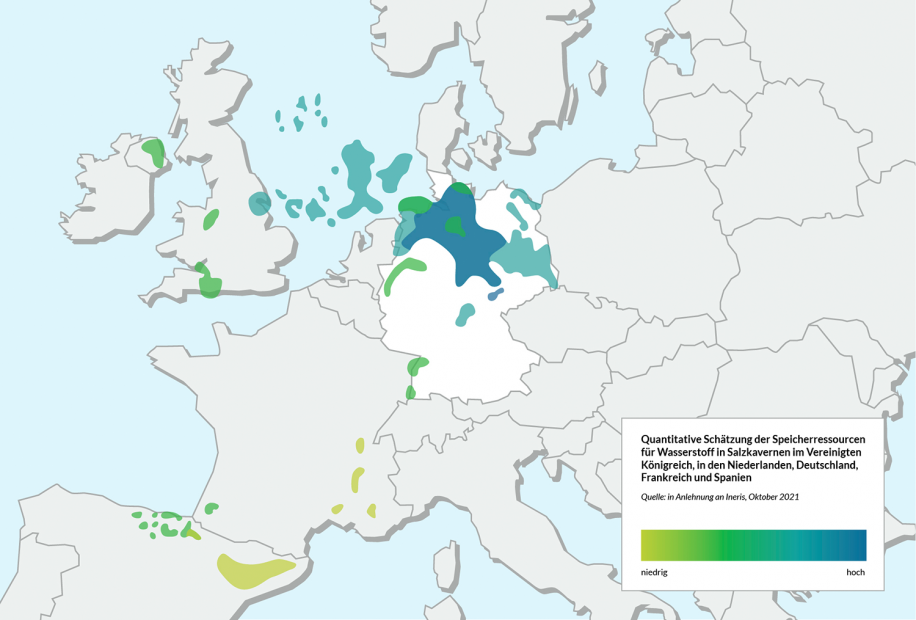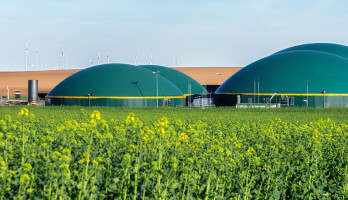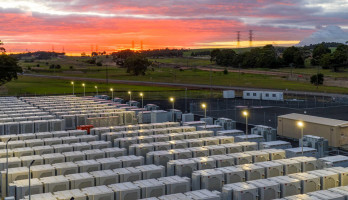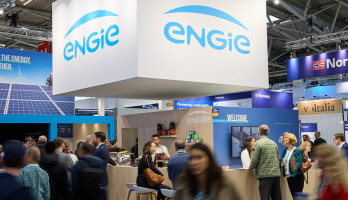
Impulse #14: Climate hope hydrogen
As a versatile energy source, hydrogen can make a significant contribution to the energy transition. Many hopes are pinned on hydrogen technology becoming a decisive climate savior. But what steps are needed today to make this happen? To discuss these and other important questions surrounding hydrogen technology, Manfred Schmitz, CEO of ENGIE Deutschland, invited a guest author to share her views today. His colleague Catherine Gras is CEO of ENGIE subsidiaries Storengy UK and Storengy Deutschland and an expert in this field.
"Hydrogen technology is a cornerstone for achieving the European climate targets. We must now set the course and build the necessary hydrogen infrastructure - the conditions in Germany are very good."
Catherine Gras, CEO of Storengy UK and Storengy Germany
We have all heard and read a lot about the "climate hope" of hydrogen. In the future, hydrogen will replace fossil fuels on a large scale and is widely regarded as the key element for the climate-neutral transformation of the economy. We at Storengy Deutschland, a company of the ENGIE Group, are among the leading hydrogen specialists in the German-speaking region and have been intensively involved with this technology for years. Our ambition is to develop and implement appropriate solutions for the production of green hydrogen by means of electrolysis of water and thus to set the course for a hydrogen-based energy infrastructure - in Germany, in Europe, worldwide. The potential is manifold. But how can we exploit it, and where do we currently stand? I am pleased to be able to share my thoughts and experiences with you, dear readers, and I would like to thank Manfred Schmitz for the opportunity to write here as a guest author.
Hydrogen as a core element of the decarbonized economy
There's no question about it: Personally, I have long been convinced that hydrogen technology is a crucial building block for decarbonizing the economy and achieving Europe's climate targets. In my view, however, we need to push development much harder. What's the problem? Certainly the infrastructure. Countries that want to rely on hydrogen on their decarbonization path need a comprehensive hydrogen infrastructure, which does not yet exist. Germany is particularly challenged here, because the decarbonization of our major industrial clusters will require enormous quantities of hydrogen. Several of these industrial clusters are located in northwestern Germany. That's why we at Storengy consider this area to be a so-called "sweet spot" that will require a particularly comprehensive infrastructure for the production, transport and storage of hydrogen in the future. Such an infrastructure in our country will benefit, and ideally even boost, the hydrogen market throughout Europe.
Energy storage of the future: storing hydrogen underground
For this to succeed, we need to set the course now. It is undisputed that storage solutions play a decisive role in this. In the future, we will need hydrogen storage on an industrial scale, i.e. on a large to very large scale. Let's start by looking at the natural gas sector. The fact is that without appropriate storage solutions, the natural gas sector in Europe would not have been able to develop as strongly in recent years and supply end consumers with energy that is both affordable and reliable. Today, about a quarter of Europe's gas consumption is stored underground. What does this mean for hydrogen? The scenario is similar to gas storage. I assume that the demand for hydrogen will develop in two different directions. On the one hand, into a fairly constant demand in industry and the mobility sector. And on the other hand into a rather irregular use as a back-up for volatile power generation. In addition, the supply of hydrogen depends on how it is produced: Blue hydrogen is produced from natural gas; its production level is easily controllable. Green hydrogen, on the other hand, is based on renewable energies and its availability is therefore more difficult to plan. To reconcile this mismatch between supply and demand, reliable hydrogen storage will play a key role. In fact, I believe that hydrogen storage will be more important for security of supply than gas storage currently is - especially in the market ramp-up of the hydrogen economy.
How Germany's north is becoming a hydrogen hub
Aquifers, former gas and oil storage facilities in porous rock, salt caverns - natural gas is stored in various ways in Europe today, and underground storage facilities in particular are of central importance. But which storage solutions are suitable for hydrogen? It's worth taking a look across the (big) pond, because salt cavern storage facilities for hydrogen are already in operation in the United Kingdom and the United States. Thus, the obvious next steps for Europe are the rededication, expansion and creation of appropriate storage facilities for hydrogen. The good news is that the geographic conditions for this are good. Northwest Germany in particular has a lot of existing capacity. And the salt layer that lies between northern Germany, the Netherlands, Denmark and the North Sea is ideal for developing new storage facilities. The fact that Denmark and the Netherlands are currently positioning themselves as hydrogen hubs, and that connections to them from Germany will promote the emergence of a large, European value chain, is a further plus point - especially in order to optimally serve supply and demand in the "sweet spots" mentioned.
A roadmap for building the hydrogen economy
Overall, we can assume that the storage demand for hydrogen in Germany will be substantial in ten years' time - so substantial that it could quickly exceed the rededication potential of existing salt caverns. As a result, new investments, expansions of existing storage facilities, and the establishment of additional storage facilities will be needed. Timing is of the essence here: In terms of climate protection policy, we need to massively advance the hydrogen economy by the end of the 2030s. This is a huge challenge for Germany as well as for any other country: the countries are challenged to simultaneously manage a shrinking gas sector, for which there is still a need for storage, and a growing hydrogen sector, for which there is a need for further storage. I believe it is essential that this transition from our natural gas infrastructure to a hydrogen infrastructure takes place in a thoughtful, structured and controlled manner. Numerous R&D and pilot projects throughout Europe are currently working on appropriate innovations and concepts. After all, for hydrogen storage to be ready for use by 2030, we need to move forward now. This means that within the next two years, the small pilot projects must scale up to large commercial projects. I am convinced that we can succeed. If industry gets into the act, companies invest substantially in the initial phase of the hydrogen economy and prepare for further investments in the coming years. And if, in turn, policymakers set the necessary framework conditions for this. Two measures are central to this: on the one hand, creating a reliable market environment for investors, suppliers and potential customers - and on the other hand, ensuring efficient approval procedures so that there are no unnecessary delays in the development process. If we succeed in this, we will be a big and important step closer to helping hydrogen achieve a breakthrough - and thus on our way to climate neutrality.
Hydrogen: A Dialog on future prospects
Dear readers, I am now extremely curious about your experiences: How do you assess the potential of "hydrogen as a climate hope"? Where do you see corresponding opportunities, and where are the biggest hurdles at the moment? Or may my team and I accompany you in a concrete project? Then feel free to contact me via LinkedIn - I look forward to exchanging ideas with you.
Sincerely
Catherine Gras
CEO of Storengy UK and Storengy Germany
Our Expert











